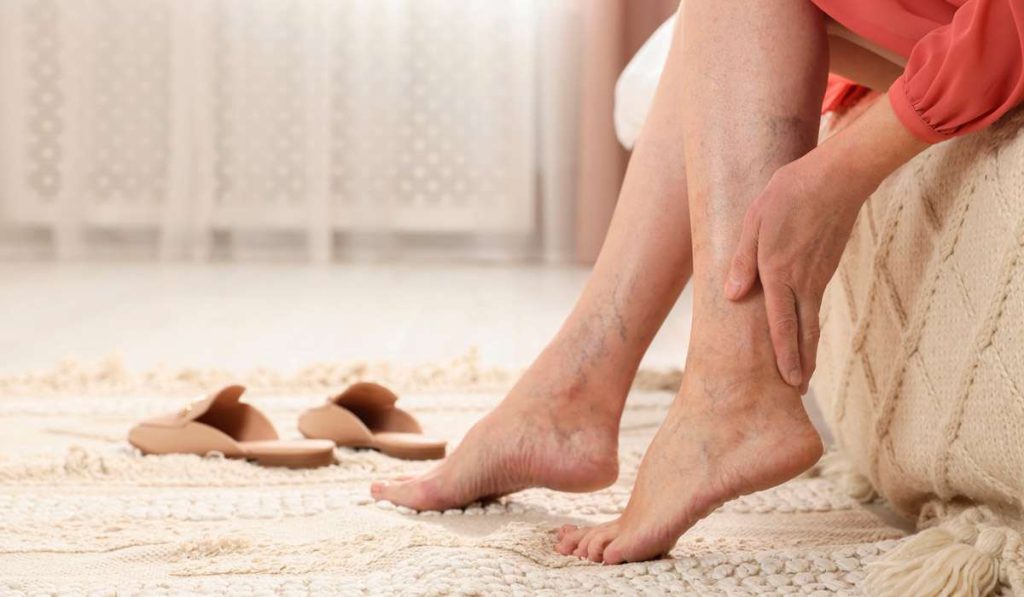
Varicose veins are more than just a cosmetic concern; they can also lead to discomfort, pain, and even more serious health issues such as blood clots.
At Fox Valley Surgical Specialists, we are committed to helping you understand the relationship between varicose veins and blood clots, how they form, and what can be done to prevent them.
The Connection Between Varicose Veins and Blood Clots
Varicose veins occur when the valves in the veins become weakened or damaged, causing blood to pool and veins to swell. This condition not only leads to pain and swelling but also significantly increases the risk of developing blood clots in the legs.
However, it’s important to note that having varicose veins does not automatically mean you have blood clots. Still, it does mean you are at a higher risk, especially if left untreated.
By seeking proper care from experienced vein specialists, you can effectively reduce your risk of blood clots and improve your overall vein health.
How Do Blood Clots Form?
Blood clotting is a natural and essential process that helps your body stop excessive bleeding following an injury. Under normal conditions, when a blood vessel is damaged, certain proteins and cells in the blood, such as platelets, come together to form a clot that seals the break. Once the vessel heals, the clot dissolves, allowing normal blood flow to resume.
However, in people with varicose veins, blood clots can form without any injury. This happens because varicose veins are often a sign of chronic venous insufficiency, where the veins fail to circulate blood properly.
When the tiny valves in the veins weaken, they can allow blood to flow backward and pool, causing the veins to enlarge and become varicose. Stagnant blood is more likely to clot, leading to a higher risk of complications like deep vein thrombosis (DVT).
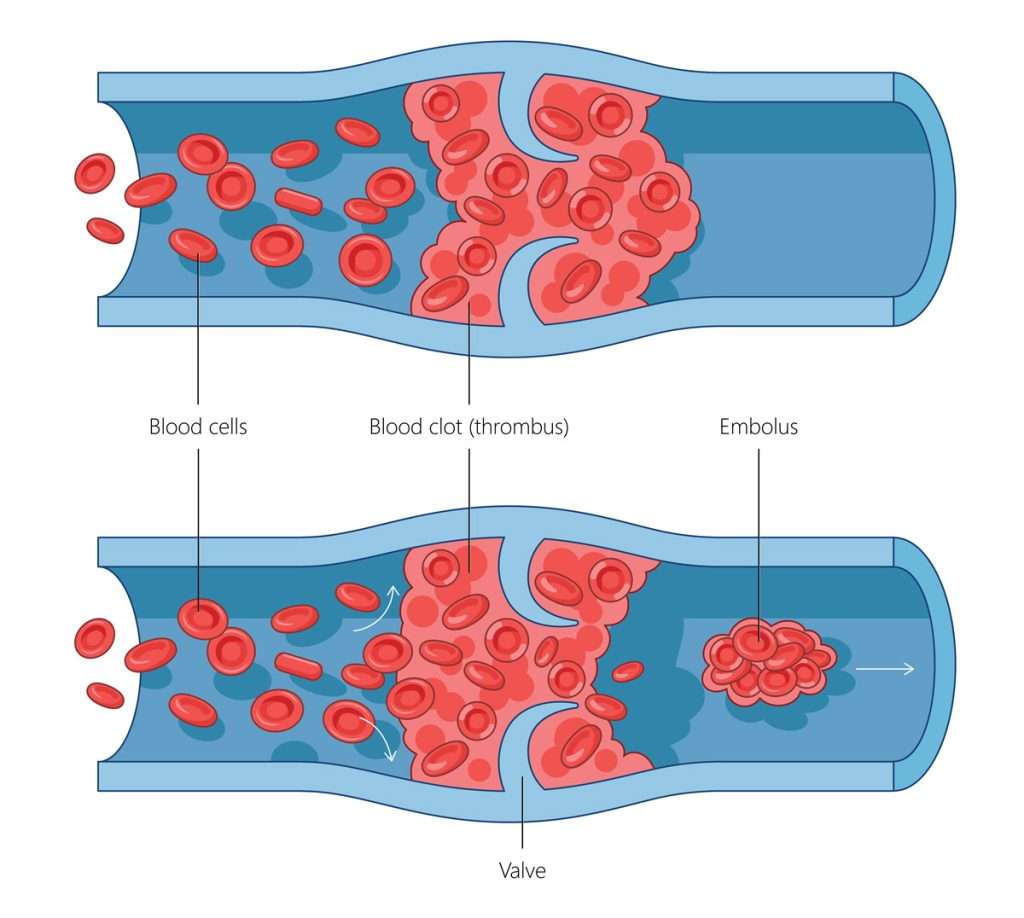
What is Deep Vein Thrombosis?
Deep vein thrombosis (DVT) is a serious condition that occurs when a blood clot forms in the deep veins of the leg. Symptoms of DVT can include swelling, pain, warmth, and redness of the skin.
If you experience these symptoms, it is crucial to seek immediate medical attention, as DVT can lead to life-threatening complications.
For example, if a clot breaks loose, it can travel to the lungs and block an artery, causing a pulmonary embolism (PE). Signs of a pulmonary embolism include shortness of breath, dizziness, rapid heartbeat, and coughing up blood.
If you notice these symptoms, visit an emergency room immediately.
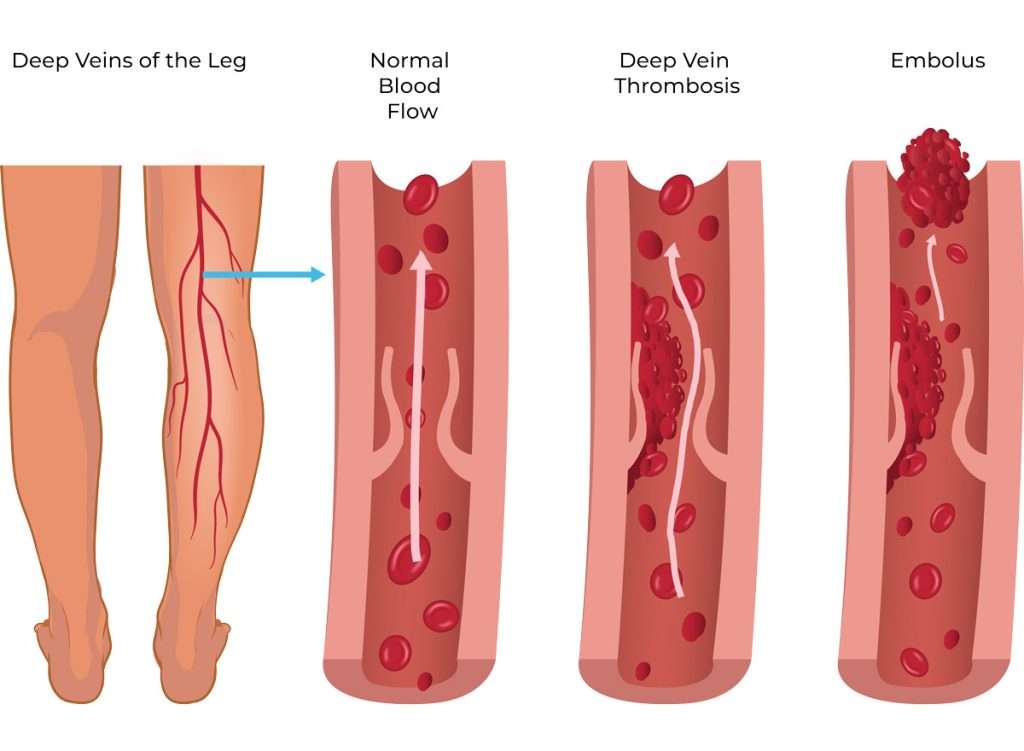
Preventing Blood Clots
Now that you know about the danger of blood clots, lets cover some ways to prevent them.
While certain risk factors for varicose veins and blood clots—such as age, genetics, or hormonal changes—cannot be controlled, there are four steps you can take to reduce your risk:
- Maintain a healthy weight: Being overweight or obese puts additional pressure on your veins, weakening them over time and leading to venous insufficiency.
- Stay active: Regular exercise improves circulation, strengthens muscles that support veins, and reduces the likelihood of blood pooling.
- Use compression stockings: These specialized socks gently squeeze your legs, helping blood move more efficiently through your veins. Compression stockings can be especially beneficial if you stand or sit for extended periods.
- Adopt a healthy diet: Eating a balanced diet rich in fiber, low in salt, and high in potassium can help prevent swelling and reduce pressure on your veins.
More here on tips for varicose vein pain relief.
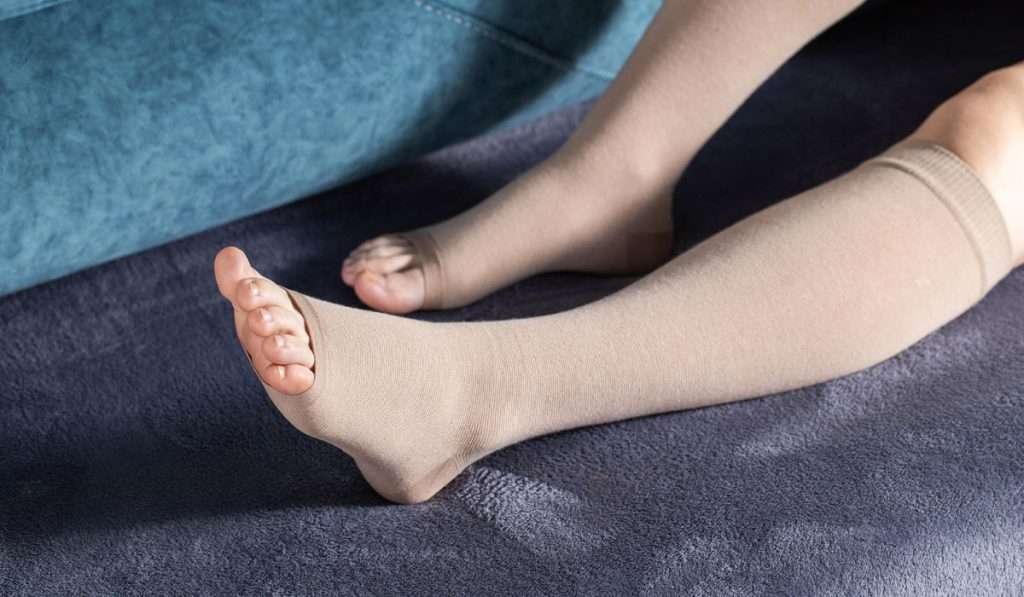
Minimally Invasive Treatments for Varicose Veins
At Fox Valley Surgical Specialists, we offer a range of minimally invasive treatments designed to effectively manage varicose veins and reduce the risk of blood clots. Depending on your specific condition, treatments may include Radiofrequency venous ablation (RFA), Varithena®, sclerotherapy, Laser venous ablation, VenaSeal™, and Microphlebectomy.
These procedures target the affected veins, improve circulation, and reduce the chances of clot formation.
Risk Factors for Varicose Veins
Several factors can contribute to the development of varicose veins, including:
- Genetics or family history
- Being overweight or obese
- Older age
- Female gender
- Prolonged inactivity or sedentary lifestyle
- Leg injuries
- Pregnancy
- Smoking
- Use of contraceptive pills or hormone replacement therapy
We discuss more about the causes of varicose veins and other venous conditions in our article on the 9 contributing factors to venous disease.
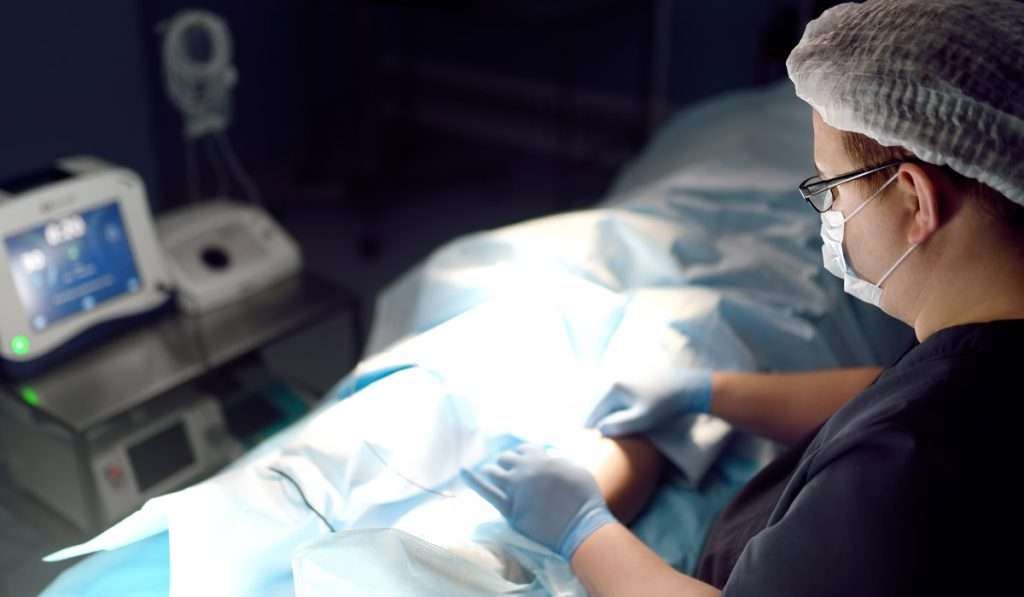
Why Choose Fox Valley Surgical Specialists?
At Fox Valley Surgical Specialists, we specialize in diagnosing and treating vascular disorders like varicose veins and deep vein thrombosis. Our team of experienced vascular and endovascular specialists are dedicated to providing personalized care that addresses your specific needs. If you have varicose veins or are concerned about your risk of developing blood clots, we offer detailed evaluations and customized treatment plans.
Don’t ignore the signs of vein disease! Reach out to our specialists and surgeons today to schedule a consultation and take the first step towards healthier veins and a healthier you. You can contact us through our website or call our vein clinic directly to set up an appointment.
By understanding the connection between varicose veins and blood clots, you can take proactive steps to protect your health. At Fox Valley Surgical Specialists, we are here to guide you every step of the way to help prevent the issues that arise when your varicose veins are left untreated. Contact us to schedule an appointment.
Related: Why are My Veins Blue?

